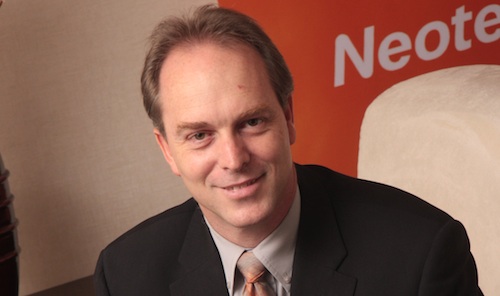
Neotel chief technology officer Angus Hay believes there is “plenty of knowledge” about local-loop unbundling available and SA ought to learn from it and adapt it to the country’s context.
Hay was speaking on Thursday at the SA Communication Forum’s workshop on local-loop unbundling (LLU) in Sandton.
“Wherever LLU has been implemented, it has dramatically increased the amount of broadband competition and resulted in more options and better pricing for users”. He says the country’s LLU deadline of November 2011 is “only achievable if all players cooperate”.
Hay says that four proposed methods of achieving LLU, put forward recently by the Independent Communications Authority of SA, aren’t a “shopping list” and Telkom “shouldn’t get to pick and choose between them”. Rather, the proposed methods should be regarded as a minimum rather than an exhaustive list.
Hay says LLU has been proven to increase options for end users, drive competition a lower prices for consumers. Hay says the Electronic Communications Act, the law that governs the telecommunications sector, has open-access principles embedded in it, and as a result, open access appears the most logical method of proceeding with unbundling.
“The absence of LLU has meant that SA has lost out on the intense service competition that has reduced prices in fixed-line broadband in the European Union,” says Hay.
“Competition has been shown to improve speeds and quality of service. Certainly, any competitor with access to the local loop faces the same technical challenges facing existing copper lines, but competition is a powerful force to encourage the overcoming of them.”
However, Hay says Neotel recognises that wholesale line rental prices must match the actual cost of network access. But he disputes Telkom’s assertion that LLU discourages further investment in the local loop.
Rather, Hay argues LLU creates new business models where investment in common access infrastructure is driven by demand from multiple carriers.
Fixed-line broadband penetration in SA lags behind many countries — both in terms of performance and price — and Hay says the country “deserves better”.
He says mobile broadband is not a substitute for fixed broadband. Even though fixed-line penetration is low, the majority of users are small businesses and lowering the cost and raising the performance of fixed-line broadband will have “a direct and positive effect on the economy as a whole”.
The proposed methods of unbundling the loop are not the only ways of achieving the desired outcome, and that SA should consider other nations’ solutions. One such alternative is the effective nationalisation of the local loop, such as done in Australia. Hay says that it is too early to see if this approach will work in the long-term, but that it is nevertheless an option.
“The cost of duplication of access infrastructure is being borne by the end users of telecoms services,” Hay says. He argues users shouldn’t be obliged to bear the cost of LLU, and that instead it should be viewed as “nothing more than sharing the cost in investment in last-mile access infrastructure”. — Craig Wilson, TechCentral
- Subscribe to our free daily newsletter
- Follow us on Twitter or on Facebook




